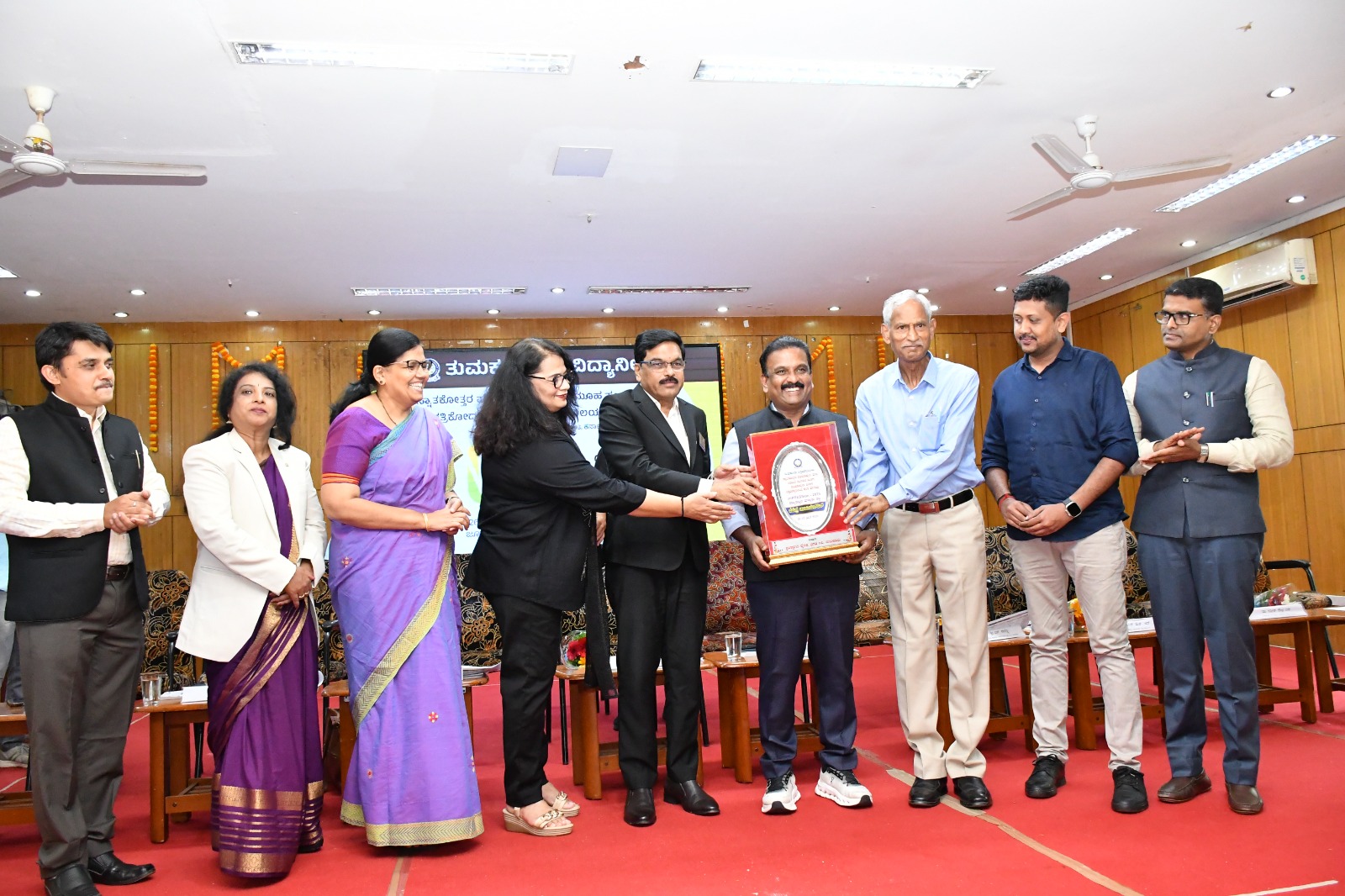“Journalism today often lacks research and relies on assumptions. Post-independence, development and investigative journalism have drastically declined. But now, the perspective is slowly changing.”
— K.V. Prabhakar, Media Advisor to the Chief Minister, Government of Karnataka & Senior Journalist
Tumakuru: In a powerful and thought-provoking address to aspiring journalists, K.V. Prabhakar, Senior Journalist and Media Advisor to the Chief Minister of Karnataka, highlighted the pressing need to revive developmental and investigative journalism in India. Speaking at the state-level media event “Impression 2025”, jointly organized by the Department of Journalism and Mass Communication of Tumkur University and the Department of Journalism, University Arts College, Prabhakar called for a return to research-based, ethical reporting.
“We proudly refer to media as the Fourth Pillar of the Constitution. But holding a mic and asking random questions without prior preparation is not journalism. Half-knowledge is dangerous. What journalism needs today is full-fledged knowledge, fact-checking, and commitment to truth,” Prabhakar said.
Drawing comparisons with the pre-independence era, he lamented how investigative and development communication, once central to Indian journalism, has now been replaced by prejudiced, sensational, and unverified content, especially across digital platforms.
 |
| The Championship Trophy was grandly unveiled during the inaugural ceremony of imPRESSion-2025, the State-Level Media Fest |
Prabhakar praised the rich heritage of Kannada journalism, which has thrived for more than two centuries. He emphasised that upcoming journalists must not only acknowledge but also protect their values and ethical foundations.
“Digital media is evolving at lightning speed, powered by Artificial Intelligence. But if the content is not real, it becomes a threat to democracy. Social media is flooded with sensational and fake news, which must be avoided at all costs,” he warned.
Addressing over 200 students from journalism and non-journalism streams across Karnataka, Prabhakar urged universities to update journalism syllabi to align with emerging technologies and ethical challenges in the media landscape.
“Be the Voice for the Voiceless”: Ayesha Khanum to Students
Chairperson of the Karnataka Media Academy, senior journalist Ayesha Khanum echoed similar sentiments, urging students to practice people-centric journalism.
“Tumkur is a land of opportunity, education, and positivity. Journalism here is a privilege. Be the voice for those who cannot speak. Represent your districts with honesty and facts,” she said.
She stressed the significance of 5Ws and 1H (Who, What, When, Where, Why, and How) in journalistic reporting and reiterated that ethics, preparation, and objectivity form the backbone of credible journalism.
“District reporters play a critical role. Journalists must prepare thoroughly, ask relevant and representative questions, and hold a spirit of participation rather than just aiming to win,” she concluded.
Journalism Is a Powerhouse of Change: University Leadership Speaks
Adding perspective from the academic leadership, Vice-Chancellor M. Venkateshwarlu urged students to rise above the comforts of the modern era and find inspiration in stories of struggle and perseverance, such as that of Prabhakar.
“Faithful media has turned into unfaithful platforms due to the entry of under-prepared individuals. This isn’t fair to society. Strive for excellence and aim to be part of India’s most respected media institutions,” he stated.
The event was attended by key dignitaries, including Sahana M., Secretary of the Media Academy, Dr. Satish Gowda N., Examination Registrar, Dakshayani G., Principal of the University Arts College, and Sibanthi Padmanabha K V, Head of Journalism Department. The session saw enthusiastic participation from over 200 students, reflecting the collective hope for a renewed commitment to meaningful journalism.










No comments:
Post a Comment